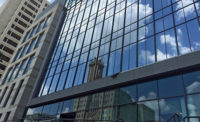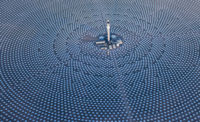The law, signed on April 8 by Gov. Christine Gregoire (D), requires use of Leadership in Energy and Environmental Design, known as LEED, for state-funded projects larger than 5,000 sq ft and for major renovations. LEED is a rating system launched in 2000 by the U.S. Green Building Council to evaluate the environmental impact of buildings.
Several states already have policies that require or encourage use of LEED. The programs run the gamut from incentives that target commercial development to mandatory minimum certification levels for public buildings.
These policies have been instituted primarily through executive order. But Washington lawmakers felt "it was important to have a law," says State Rep. Hans Dunshee (D), one of the bills sponsors. "Governors come and go," he says.
Although Washington legislators were the first to the finish line, other states have legislation in the works. In Pennsylvania, a House committee is crafting a bill that would require use of LEED on state-funded projects. A bill introduced
in Connecticuts Senate would require LEED silver or equivalent on projects over $1 billion that receive at least 25% of capital funds from the state.
More than 30 municipalities and counties also have policies incorporating LEED. Last month the city council of Scottsdale, Ariz., approved a resolution requiring gold certification for new city facilities and renovation projects.
Early drafts of Washingtons legislation were opposed by the wood products industry because LEED includes a credit for wood certified by the Forest Stewardship Council. Timber interests maintain that that such wood is not as widely available as that certified by competing standards like the Sustainable Forestry Initiative and the Canadian Standards Association. Debate relating to the wood products section of the bill was "contentious," says Dunshee.
The final legislation recognizes other certification organizations and wood from forests regulated by the Washington forest practices act. "With affirmative recognition of third-party certification systems such as SFI and CSA, we supported it," says Frank Mendizabal, a spokesman for Weyerhaeuser, Federal Way, Wash.
| States That Have LEED Policies | ||||
| STATE | POLICY TYPE | APPLICATION | RATING LEVEL | YEAR |
| Arizona | Executive order | State-funded buildings | Silver | 2005 |
| California | Executive order | New and renovated state-owned facilities | Silver | 2004 |
| Maine | Executive order | New and expanding state buildings | Not required * | 2003 |
| Michigan | Agency rule | State-funded capital projects over $1 million | Certified | NA |
| New Jersey | Executive order | New schools | Certifiable ** | 2002 |
| New York | Executive order | State projects | Certification encouraged | 2001 |
| Oregon | Incentive | Business energy tax credit | Silver | NA |
| Pennsylvania | Agency rule | Depts. of Environmental Protection and Conservation buildings | Silver | NA |
| Washington | Legislation | State-funded projects over 5,000 sq ft | Silver | 2005 |
| NA= Not available Possible leed ratings: certified, silver, gold and platinum; * = Based on costs; ** = USGBC approval not needed Source: U.S. Green Building Council | ||||



Post a comment to this article
Report Abusive Comment